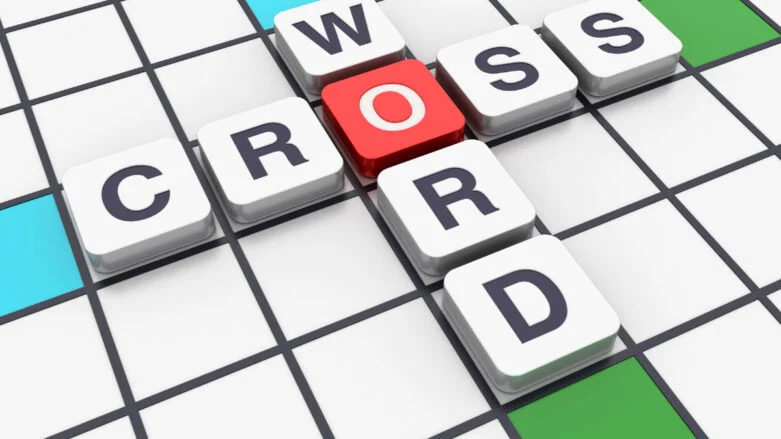Decoding the Mystery: How Everyone Tackles NYT Crossword Clues
The New York Times Crossword has been a beloved challenge for puzzle enthusiasts for decades. Each day, countless fans eagerly dive into solving its clues, unraveling clever wordplay, and testing their vocabulary. But what drives people to engage with these puzzles so passionately? In this article, we’ll delve into the appeal of latches onto nyt crossword clue crosswords, explore the strategies used by solvers, and offer tips on how anyone can enhance their skills and tackle NYT crossword clues like an expert.
The Allure of the NYT Crossword
The New York Times Crossword is more than just a puzzle; for many, it’s a cherished daily routine. The challenge of solving each clue, the excitement of watching the grid come together, and the satisfaction of finishing the puzzle are all reasons people are drawn to it. The difficulty varies throughout the week, with easier puzzles on Mondays and increasingly tough ones by Saturday. The Sunday puzzle, being larger and more intricate, demands a different strategy to tackle effectively.
A Tradition of Excellence
Since its debut in 1942, the NYT Crossword has set the standard for quality and creativity in puzzle design. Will Shortz, who has been the crossword editor since 1993, has maintained this tradition by crafting puzzles that combine clever wordplay, cultural references, and new themes. This dedication to excellence is why puzzle enthusiasts from around the globe eagerly tackle NYT crossword clues every day.
The Joy of latches onto NYT Crossword Clues
There’s a special thrill in solving thelatches onto nyt crossword clue especially when you crack clues that initially seemed impossible. The experience of diving into the puzzle, thinking outside the box, and finally seeing the grid come together is incredibly rewarding.
Building a Community
The NYT Crossword community is lively and inviting. Online forums, social media groups, and local meetups offer opportunities for solvers to discuss puzzles, exchange tips, and celebrate their achievements. Joining this community can boost your enjoyment of the puzzles and help you tackle NYT crossword clues more effectively by learning from others.
Personal Growth and Brain Training
Solving crosswords is an excellent way to keep your mind active. Research indicates that tackling puzzles like the latches onto nyt crossword clue can enhance cognitive functions, including memory and problem-solving skills. The mental challenge and sense of accomplishment from cracking NYT crossword clues contribute positively to overall brain health.
Strategies to latches onto NYT Crossword Clues
Although the puzzles can be tough, using specific strategies can help you tackle NYT crossword clues more effectively. Whether you’re a beginner or a seasoned solver, these tips can improve your solving skills.
Start with the Easiest Clues
One effective approach to solving latches onto nyt crossword clue clues is to start with the easiest ones. Focus on fill-in-the-blank clues or answers that frequently appear in crosswords. These simpler clues can give you a foothold in the grid, helping you tackle the more difficult clues that follow.
Pay Attention to the Clue’s Wording
The way a clue is worded can provide valuable hints about its answer. Familiarizing yourself with common crossword conventions, like abbreviations, wordplay, and puns, can help you solve NYT crossword clues more efficiently. For instance, if a clue ends with a question mark, it usually signals a pun or a clever twist on words.
Leverage Cross-References
latches onto nyt crossword clue in the puzzle can be very useful. By tackling interconnected clues, you can unlock answers that initially seemed challenging. Completing one section of the grid can provide letters that help you solve other parts more easily.
Use Crossword Solving Tools
Online tools and apps can be great aids for tackling difficult puzzles. While some purists prefer to solve without any help, using a crossword dictionary or solving app can assist you when you’re stuck. These tools not only help you work through challenging clues but also expand your vocabulary and enhance your solving skills.
FAQ
1. How can I improve my skills at solving NYT Crossword puzzles?
Start by solving easier clues to build confidence, pay attention to common crossword conventions like abbreviations and puns, and use cross-references to your advantage. Practice regularly and consider using tools or apps to assist when needed.
2. What should I do if I get stuck on a puzzle?
If you’re stuck, try focusing on easier clues first, use cross-references to fill in more of the grid, and consult crossword dictionaries or apps for hints. Take breaks if needed to clear your mind and return with a fresh perspective.
3. How do I approach a particularly difficult NYT Crossword puzzle?
Begin by tackling the simpler clues to create a foundation. Look for fill-in-the-blank clues or common entries to get started. Pay attention to the wording of the clues and use any completed sections to help with harder parts of the puzzle.
4. Are there specific strategies for different days of the week?
Yes, puzzles generally increase in difficulty throughout the week, with Monday being the easiest and Saturday the most challenging. Use simpler clues to build momentum early in the week and adapt your strategy as the puzzles become more complex.
5. How can being part of the crossword community enhance my solving experience?
Joining online forums, social media groups, or local meetups can provide support, tips, and encouragement. Engaging with the community can also offer new strategies and perspectives that can improve your solving skills.
Conclusion
The NYT Crossword is more than just a puzzle; it’s a daily ritual that combines challenge, creativity, and satisfaction. By employing effective strategies, understanding crossword conventions, and utilizing tools and community support, you can enhance your solving skills and fully enjoy the process. Whether you’re new to crosswords or a seasoned solver, these tips can help you approach each puzzle with confidence and make the most of your puzzling experience.






